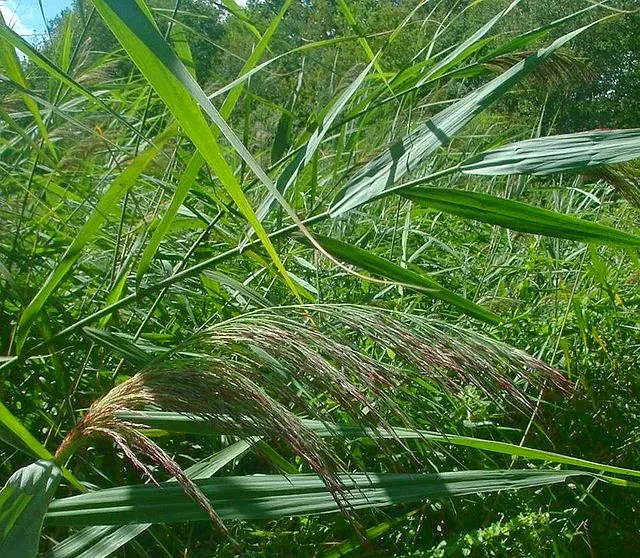By Liliana Usvat
Blog 220-365
Reed beds are natural habitats found in floodplains, waterlogged depressions and estuaries. Reed beds are part of a succession from young reed colonising open water or wet ground through a gradation of increasingly dry ground. As reed beds age, they build up a considerable litter layer which eventually rises above the water level, and ultimately provides opportunities for scrub or woodland invasion. Artificial reed beds are used as a method of removing pollutants from grey water.

Reed beds with water levels at or below the surface during the summer are often more complex botanically and are known as reed fen. Reeds and similar plants do not generally grow in very acidic water, and so in these situations reed beds are replaced by other vegetation such as poor-fen and bog.
A bog is a mire that accumulates peat, a deposit of dead plant material—often mosses, and in a majority of cases, sphagnum moss.It is one of the four main types of wetlands.
Jiwa Damai (meaning Peace of Soul), based in Mambal, close to Ubud in Central Bali, Indonesia is a retreat centre and organic permaculture garden, designed in accordance with nature.
They offer permaculture courses and courses in organic farming and demonstrate sustainable practices using biological gardening techniques and EM (effective microorganism) technology to recycle biological waste and to grow fruits, vegetables, forest, medicinal herbs and plants for Balinese ceremonies.

They also cultivate coconut palms for the production of Bali Extra Virgin Coconut oil.

A focus is to preserve rare species of indigenous plants. One area of the garden contains a variety of medicinal herbs, in other areas we grow plants for Balinese ceremonies as well as organic vegetables and fruit.

Blog 220-365
Indonesia
The Indonesian Development of Education and Permaculture assisted in disaster relief in Aceh, Indonesia after the 2004 Tsunami.They have also developed Wastewater Gardens, a small-scale sewage treatment systems similar to Reedbeds.Reed beds are natural habitats found in floodplains, waterlogged depressions and estuaries. Reed beds are part of a succession from young reed colonising open water or wet ground through a gradation of increasingly dry ground. As reed beds age, they build up a considerable litter layer which eventually rises above the water level, and ultimately provides opportunities for scrub or woodland invasion. Artificial reed beds are used as a method of removing pollutants from grey water.

Reed beds with water levels at or below the surface during the summer are often more complex botanically and are known as reed fen. Reeds and similar plants do not generally grow in very acidic water, and so in these situations reed beds are replaced by other vegetation such as poor-fen and bog.
A bog is a mire that accumulates peat, a deposit of dead plant material—often mosses, and in a majority of cases, sphagnum moss.It is one of the four main types of wetlands.
Jiwa Damai (meaning Peace of Soul), based in Mambal, close to Ubud in Central Bali, Indonesia is a retreat centre and organic permaculture garden, designed in accordance with nature.
They offer permaculture courses and courses in organic farming and demonstrate sustainable practices using biological gardening techniques and EM (effective microorganism) technology to recycle biological waste and to grow fruits, vegetables, forest, medicinal herbs and plants for Balinese ceremonies.

They also cultivate coconut palms for the production of Bali Extra Virgin Coconut oil.

A focus is to preserve rare species of indigenous plants. One area of the garden contains a variety of medicinal herbs, in other areas we grow plants for Balinese ceremonies as well as organic vegetables and fruit.




No comments:
Post a Comment